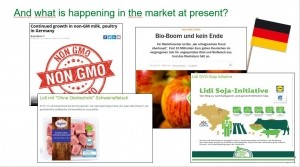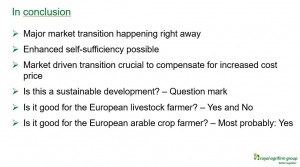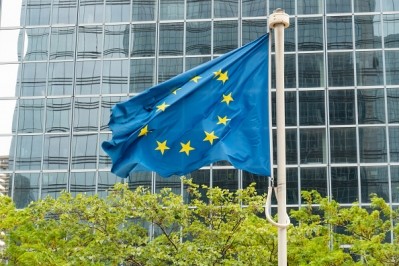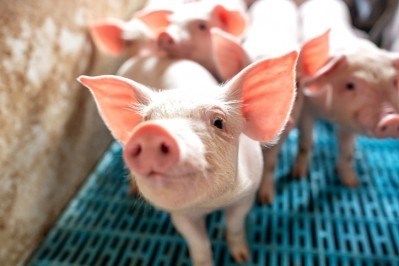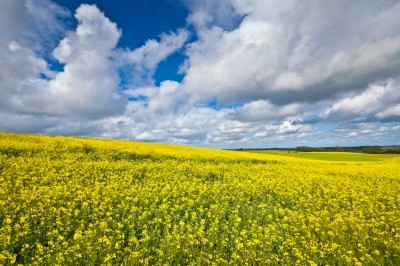Reports from Feed Protein Vision 2018
Pressure increasing for European feed protein self-sufficiency
He was speaking at FeedNavigator’s inaugural face-to-face event, Feed Protein Vision, in Amsterdam on 6-7 March.
There is growing pressure for local sourcing of feed protein raw materials in Europe; the pressure is coming from retailers but also policymakers for protein self-sufficiency, he said.
Some of the drivers behind this transformation trend are consumer and NGO concerns about deforestation linked to soy production in South America.
Moreover, a significant proportion of soybean crops grown outside the EU are genetically modified, but European demand for non-GM food and feed remains high, stimulating the need for local production, he told delegates.
Poland, for example, currently opposes of the use of GMOs in agriculture and on January 1, 2019, a ban on imported feed derived from GMO crops is scheduled to enter into force, noted Tijssens.
He also cited the development last July that saw 11 European countries signing the European Soy Declaration in Luxembourg; the declaration supports a reduction in soy imports.
Another trend, he said, is increased interest in closing the mineral cycle - the local recycling of excess nutrients in livestock wastes such as manure for subsequent cereal crop production.
How to replace the, on average, 30m tons of soy imports brought into Europe on annual basis remains the big question though.
Tijssens argues that there has already been growth in feed protein raw material production – rapeseed meal and soybean meal, for example - in Europe.
However, it is important to define Europe, he stressed, in this context of determining how much protein is already produced in the region. Thus, should European feeds come from continental Europe or from political Europe, he asked.
“Do we include Ukraine in that equation? If we do include it, then the current estimate for European protein production is 9m tons. If we only speak about the EU 28, then it is estimated at 2.7m tons.”
Locally sourced European feeds will come with a higher cost though.
“It is a matter of price – if the market is willing to pay the price then this transformation will happen.”
In 2016, Agrifirm established the Green Deal Soy in the Netherlands, which is backed by national and regional governments. The goal is to enable the cultivation of soy in the Netherlands to grow significantly to at least 10,000 hectares. Green Deal is focused on improving yields and developing the market for Dutch soy.
EU protein plan
The European Commission is asking experts and stakeholders for their views on the state of play in the EU plant protein sector, the first phase in the possible development of an EU-wide protein plan. The EU executive said European production of protein crops is not sufficient to cover demand, due in part to the agro-climatic conditions in Europe; soybeans can also enter the EU market tariff-free, which in turn reduces the cost-effectiveness of local production.
The Commission wants to prepare a report evaluating all aspects of regional protein crop production and measures to stimulate such cultivation and is seeking feedback. The deadline for submitting comments via the Commission's online survey though is fast approaching - 23 March.
The EU officials said they are keen to assess the effectiveness of approaches such as policy instruments like voluntary coupled support - linking farmers’ direct support to production of protein crops in order to stimulate the sector.
The Commission is also planning a series of thematic workshops to further debate actions needed to support EU plant protein production; those meetings would look at issues around research and innovation, environmental benefits or supply chain issues.
